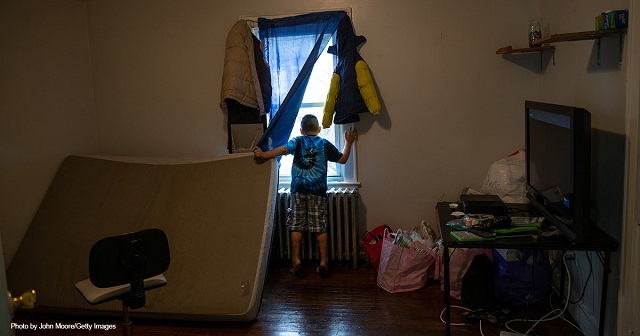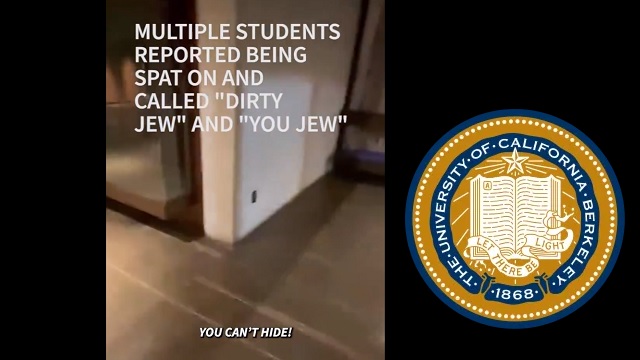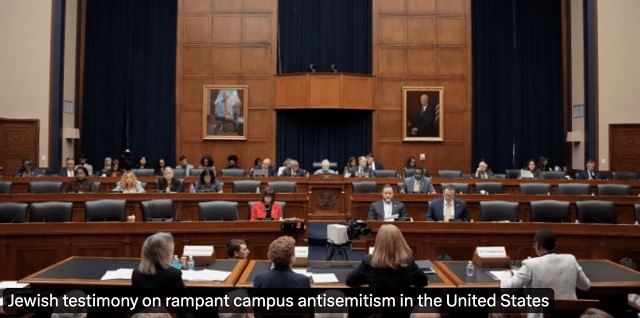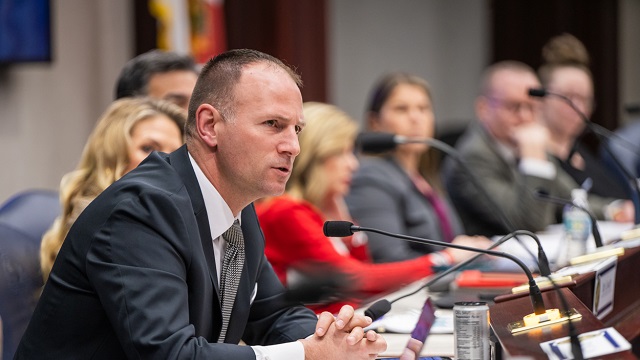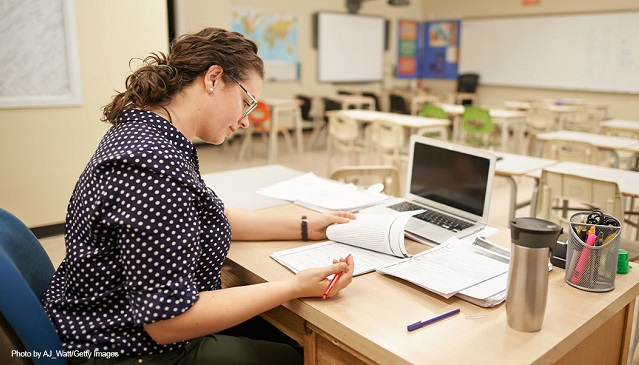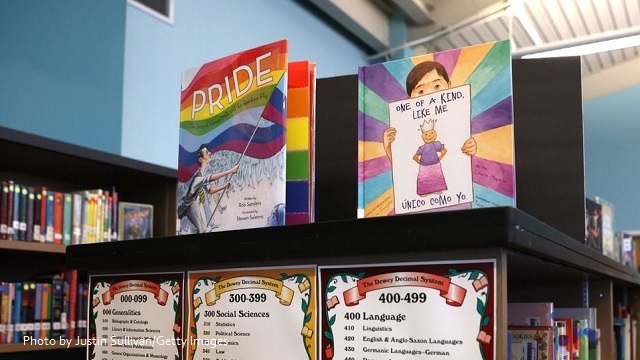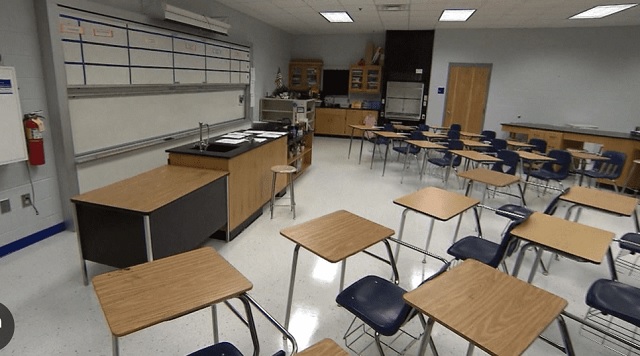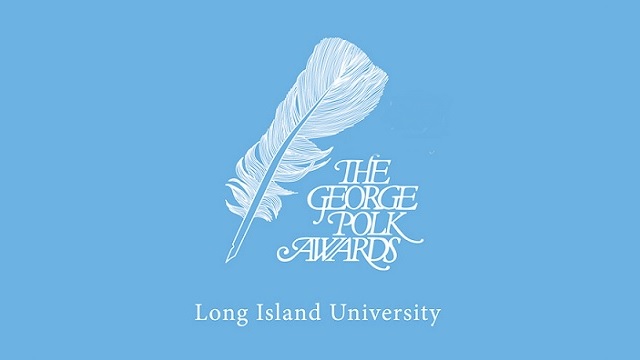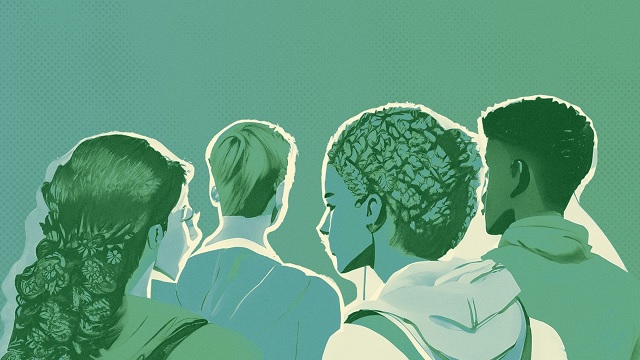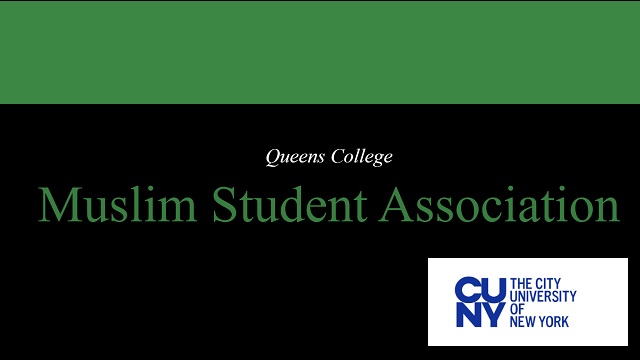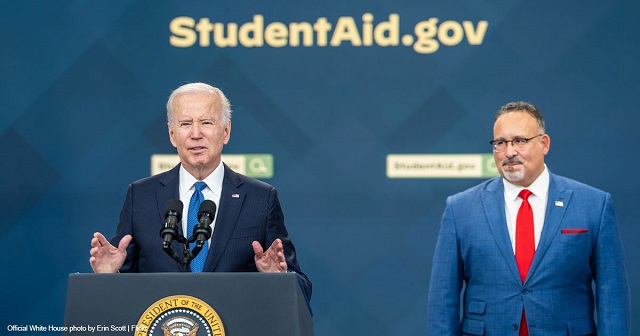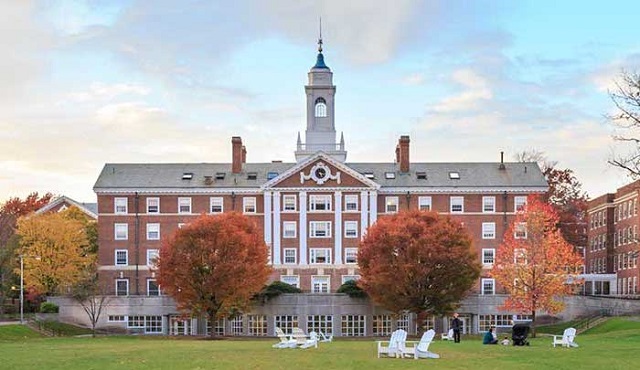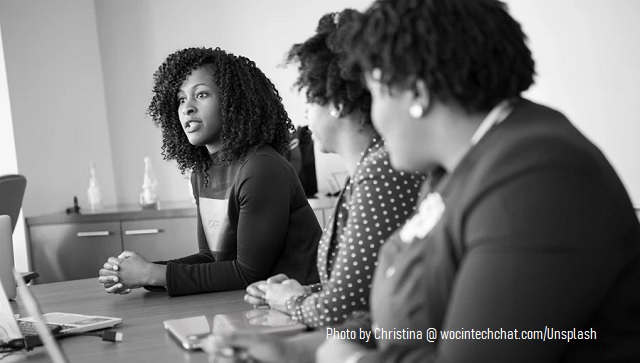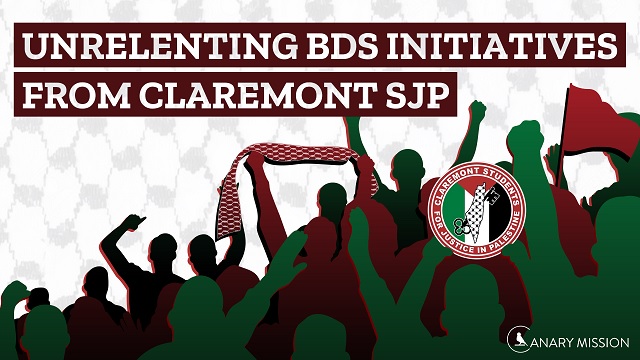
- On February 11, 2024, the Pitzer College Student Senate voted to suspend Pitzer’s study abroad partnership with the University of Haifa in Israel. The resolution was spearheaded by Claremont Students for Justice in Palestine (SJP) and Jewish Voice for Peace (JVP). Pitzer College is one of the seven Claremont Colleges in Claremont, California.
- Since 2018, Claremont SJP has been trying to pass this initiative. However, the response by Pitzer’s president was swift and decisive. In a statement, Pitzer said, the “Student Senate does not speak for the College, nor does it represent the views of all Pitzer students. The president will not accept…any resolution antithetical to [the principles of academic freedom and safe and productive learning].”
- Claremont SJP has a long history of supporting terrorists, calling for Israel’s destruction and rejecting dialogue. The group regularly promotes anti-Israel agitators and initiates campaigns for the Boycott, Divestment, Sanctions (BDS) movement against Israel.
KEY FINDINGS
Claremont SJP and JVP spearheaded the ‘Suspend Pitzer Haifa’ initiative, resulting in the Pitzer College Student Senate voting to suspend the college’s study-abroad partnership with the University of Haifa in Israel.
This BDS campaign is a continuation of an initiative that began in 2018.
Daniel Segal, the faculty advisor for SJP, played a key role in both the 2018 and 2024 campaigns to suspend the Haifa partnership, acting as a link between the two efforts.
On October 7th, the same day as the massacre committed by Hamas in Israel, Segal posted on X (formerly Twitter) justifying the attack with the following statement: “Israeli state apartheid, ethnic cleansing & settler colonialism are ongoing violence against Palestinians; some of the resistance provoked is violent also. All who support the oppression, all who oppose non-violent BDS, have more blood on their hands today. #PalestinianFreedom.”
Claremont SJP and JVP act as two campus groups united under the same banner and have collaborated on events as far back as 2015.
On October 8th, one day after the brutal Hamas attack, Claremont SJP and JVP issued a joint statement blaming Israel for all bloodshed and expressing support for resistance and intifada.
Malak Afaneh, a prominent figure in the 2018-2019 ‘Suspend Pitzer Haifa’ campaign, later attended Berkeley Law, where she served as president of the Students for Justice in Palestine (SJP) chapter. During her tenure, the SJP chapter notably drafted a bylaw to exclude Zionist voices from campus.
Lea Kayali, another key player from the 2018-2019 ‘Suspend Pitzer Haifa’ campaign, is now an organizer with Harvard Law School Justice for Palestine (HLS Justice for Palestine), one of the groups that signed the October 2023 anti-Israel statement. This statement, endorsed by over 30 Harvard student groups, held Israel entirely responsible for the violence perpetrated by Hamas on October 7th.
SEE BELOW CLAREMONT SJP HISTORY OF EXTREMISM AND TERROR SUPPORT
JUSTIFYING HAMAS ATROCITIES
The day after Hamas’ October 7, 2023 massacre of 1,200 Israelis and the kidnapping of 250 more, Claremont SJP and JVP issued a joint statement in support of Hamas, which praised “decolonization” (read: murder), Palestinian “resistance” and violent uprising (intifada). This statement justified the Hamas attack, placing all the blame and loss of life squarely on Israel’s shoulders.
The statement read in part:
Before October 7, Claremont SJP activities in 2023 centered around the re-launch of their campaign against Pitzer to suspend its exchange program with the University of Haifa in Israel.
In addition, the group strategized how they could prevent the Claremont student government from adopting the International Holocaust Remembrance Alliance (IHRA) definition of antisemitism.
The definition includes singling out Israel and holding it to a different standard than other countries of the world vis-a-vis boycotts (a feature of the BDS movement).
Claremont SJP also pushed the lie that Israel was harming Black and Brown communities in Los Angeles by training the Los Angeles police department in repressive surveillance techniques.
2022
In 2022, Claremont SJP participated in a car caravan protest in response to false charges against Israel of “ethnic cleansing” neighborhoods in Jerusalem, Hebron and the Negev region.
The group also held a “Free Palestine” Week and ended the year with a letter-writing event to “show solidarity and build morale” for the “Holy Land 5.” The Holy Land 5 refers to the five individuals who worked for the Holy Land Foundation in Texas and were convicted of funneling money to Hamas in the largest terror financing case in American history. Three of the men are still in prison serving their sentences.
2021
SUPPORTING TERRORISTS
In May 2021, Hamas and Palestinian Islamic Jihad (PIJ) terrorists fired over 4,300 rockets from Gaza at major population centers in Israel.
Israel responded by launching “Operation Guardian of the Walls (OGW),” carrying out targeted military strikes in Gaza.
During the conflict, Claremont SJP advertised two marches organized in solidarity with the “Palestinian Uprising and General Strike.” The first, held on May 15, 2021, was billed as an “LA Rally & Protest for Resistance Until Liberation!”
The second, on May 18, 2021, was held in front of the Israeli consulate in Los Angeles.
As of December 2021, Claremont SJP’s signature was on a petition calling the “Palestinian Students Solidarity Campaign” that was launched by the anti-Israel NGO Samidoun: Palestinian Prisoner Solidarity Network (Samidoun).
The petition supports Palestinian students detained or incarcerated by Israel for participating in direct terror activity or terror-related activities.
Samidoun advocates for the release of all Palestinian prisoners, many of whom are members of Hamas or other terror groups like the PFLP. Multiple Samidoun activists have been identified as PFLP members, including Mohammed Khatib, Samidoun’s European coordinator.
On March 26, 2021, Claremont SJP posted to Facebook an event page for an online panel titled “Free Them All!” that featured Khatib. The event page said speakers would discuss “the importance of supporting and organizing for the freedom of political prisoners as part of the Palestinian national liberation struggle.”
CALLING FOR ISRAEL’S DESTRUCTION
As of December 2021, Claremont SJP’s platform referred to Israel as an “apartheid state…that can only be dismantled through Palestinian national liberation.”
As of the same date, Claremont SJP’s Instagram bio read: “Fighting for Palestinian liberation, from the river to the sea.” The same quote reportedly appeared in the Instagram bio as early as February 2020.
“From the River to the Sea, Palestine will be Free” is a chant used [00:02:52] to call for the elimination of the State of Israel. It has also been employed by Hamas leader Khaled Mashal to call for the replacement of Israel with an Islamic state.
The text on a September 21, 2021 advertisement for Claremont SJP for the colleges’ 5C club fair read, “Join Claremont SJP to fight for the liberation of Palestine from the river to the sea.”
HOSTING A TERRORIST SUPPORTER
On November 18, 2021, Claremont SJP hosted an event titled “A Conversation with Mohammed El-Kurd,” who has glorified terrorists, spread incitement against Israel and whitewashed Hamas. El-Kurd has also spread hatred about America and the police and conspiracy theories about Israel.
He has spread misinformation about Israel in interviews on CNN and MSNBC as well as social media. The event advertisement called El-Kurd a “Palestinian activist and poet.”
El-Kurd’s talk was also sponsored also by the Departments of International Relations, Religious Studies and English at Pomona College as well as the Associated Students of Pomona College (ASPC), Pomona’s student government; McKenna’s student government, The Associated Students of Claremont McKenna College (ASCMC); and the 5C Prison Abolition Collective.
DEMONIZING ISRAEL
During the May 2021 conflict in Israel, Claremont SJP advertised on Instagram a rally in Chicago, calling out all their “Chicago friends” to attend the rally to “Stand against Israeli land theft” and “Stand with the people of Sheikh Jarrah.”
In May of 2021, a property dispute in the East Jerusalem neighborhood of Sheikh Jarrah erupted into violence in anticipation of an Israel High Court hearing that was expected to rule on eviction proceedings. The dispute involved over 70 Palestinian tenants illegally residing in Jewish-owned properties. On May 9, 2021, the court postponed the hearing.
The Sheikh Jarrah dispute sparked violent clashes between Palestinian protesters and Israeli security forces in and around the Al Aqsa Mosque on the Temple Mount.
Incitement surrounding Al Aqsa and Sheikh Jarrah were leading factors in Hamas and Palestinian Islamic Jihad (PIJ) terrorists firing over 4,300 rockets from Gaza at Israeli population centers on May 10-21, 2021. Israel responded by launching OGW, carrying out targeted military strikes against the terrorists and their infrastructure in Gaza.
REJECTING DIALOGUE
As of December 2021, Claremont SJP’s platform read: “We reject any and all collaboration, dialogue, and coalition work with Zionist organizations through a strict policy of anti-normalization and encourage our comrades in other organizations to do the same.”
Proponents of the “anti-normalization” policy seek to police all interactions between Israelis and Palestinians and shut down all conversations, interactions and speech that they perceive as being ideologically unaligned with their own agenda. Adherents to this position reject “liberal Zionist” groups who seek to dialogue with Palestinians on the grounds that such interaction “normalizes” entrenched power dynamics.
This policy was originally dictated by the BDS National Committee (BNC), which listed as one of its “main activities” the “Monitoring & Rapid Response” against interactions that recognize or cooperate with “Israel’s regime.”
CAMPAIGNING FOR BDS
On April 15, 2021, Claremont SJP and 5C Jewish Voices for Peace (JVP) introduced a resolution to the Associated Students of Pomona College (ASPC) Senate that mandated ASPC compliance with BDS.
The resolution was titled [p.1], “Banning the Use of ASPC Funding to Support the Occupation of Palestine” and it required [p.2] that ASPC “internal spending” could not be used on products or services from companies that “knowingly support the Israeli occupation of Palestine.”
ASPC internal spending includes multiple items including funding 5C student clubs and student-run events.
The resolution also created [p.2] an oversight role for Claremont SJP over the ASPC-run Coop Store and the Coop Fountain restaurant. According to the resolution, ASPC would “work in tandem with members of SJP, and other pertinent parties, to perform an annual check on the ASPC’s businesses to ensure all goods sold adhere to the guidelines outlined in this resolution.”
The resolution stated [p.2] that: “Clubs that fail to divest and/or refrain from such uses of funding would face the loss of all Claremont Colleges Student Government Association funds.”
Claremont Colleges pool mandatory student activity fees and distribute the money to the 5C student governments. ASPC provides almost 47% of the funding for all 5C clubs, although each 5C student government can fund 5C clubs.
The above clause effectively mandated BDS compliance for pro-Israel and Jewish student organizations like Claremont Hillel and Claremont Chabad.
In the spring of 2021, ASPC gave more than $10,000 to 5C clubs. It also gave $30,000 for student-run events at Pomona that were coordinated through the ASPC’s Pomona Events Committee (PEC). The full ASPC spring 2021 budget was $216,700.
The Claremont SJP and Claremont JVP resolution also said [p.2] that ASPC’s “end goal” would be to lead other 5C student governments to pass similar BDS resolutions.
On April 22, 2021, the ASPC Senate passed the resolution with a vote of 10-0-0. Five senators were not present, representing one-third of the ASPC Senate’s 15 seats.
The same day, Claremont SJP issued a press release calling the resolution’s passage “an important first step in reducing our complicity with a country that maintains an illegal military occupation and regularly commits crimes against humanity against the indigenous Palestinian population.”
On April 23, 2021, following criticism of the resolution reportedly among campus and national Jewish groups, Pomona President G. Gabrielle Starr sent an email to the student body opposing the resolution. Starr said that requiring student clubs to boycott Israel was “deeply concerning.” She said that since the vote “was held without representation from any student opposition,” the ASPC Senate should “reverse course and allow for full discussion.”
On April 29, 2021, the ASPC Senate held a Zoom meeting that included a “comment period” for student senators and student guest speakers to express their feedback on the resolution.
On April 30, 2021, the ASPC Senate reportedly decided to “table the resolution” for further discussion in regards to the resolution’s call to deny funding to student clubs that failed to adhere to BDS.
On May 6, 2021, the ASPC Senate reportedly passed a modified resolution that omitted the original clause forcing student clubs funded by ASPC to comply with BDS.
The final resolution mandated BDS compliance for internal ASPC spending, PEC-coordinated events and the two ASPC-managed businesses. Claremont SJP was also granted the oversight role regarding the compliance of ASPC businesses with the resolution.
2019
DEMONIZING ISRAEL
On April 2, 2019, Claremont SJP hosted an event titled, “The Washings: Pinkwashing, Greenwashing, and Faithwashing,” as part of Palestinian Freedom Weeks 2019 (PFW 2019) which was held on campus from March 25-April 7, 2019)
The Facebook event page accused Israel of “settler colonialism” and also said: “The Washing Campaign has been fundamental in sustaining Israeli apartheid by way of presenting Israel as a progressive entity in an effort to deflect from state-sanctioned crimes against Palestine.”
“Pinkwashing” is a claim used by anti-Israel activists to argue that Israel manipulates the LGBTQ community in order to garner support for Israel.
“Greenwashing” is a claim that Israel advocates manipulate the environmentalist community in order to garner support for Israel.
“Faithwashing” is an accusation that supporters of Israel engage in interfaith dialogue to promote a pro-Zionist agenda.
On March 27, 2019, Claremont SJP hosted another PFW 2019 event titled “Open Air & Cages: Prison Abolition from Attica to Gaza.” The event’s Facebook page called the United States and Israel “white supremacist and settler colonial projects.”
The same event page also said: “This event will work through the solidarity pacts of the Palestine Liberation Organization and the Black Panther party who attempted to draw ‘comparisons between racial capitalism in the United States and Israel …’”
The Palestinian Liberation Organization (PLO) was declared a foreign terrorist organization by the United States in 1987. The group’s 1968 charter stated that its goal was the “liberation of Palestine” through “armed struggle.”
Yasser Arafat, who was known as the “father of modern terrorism,” was the leader of the PLO from 1969 until his ddeath in 20014.
The Black Panther Party (BPP) was a revolutionary Marxist political organization founded in 1966. The party advocated the use of violence and guerilla tactics to overthrow the U.S. government. BPP members were involved in a number of fatal firefights with police.
On March 25, 2019, Claremont SJP hosted an event titled, “Visit the Mock Apartheid Wall,” where they built a wall on campus meant to simulate Israel’s security barrier.
Israel’s security barrier, 97% of which is a low chain-link barrier, was built as a deterrent to Palestinian terror attacks. The concrete portions of the fence were built in response to Palestinian sniper attacks.
The event’s Facebook page read, “The Wall is an extension of Israel’s policies of land theft and ethnic cleansing.” The page also said, “We especially want to bring attention between the connections between the construction of the Apartheid Wall in Palestine and other similar racist, oppressive projects of border militarization around the world.”
PROMOTING ANTI-ISRAEL AGITATORS
On November 14, 2019, Claremont SJP hosted a film screening of “Gaza Fights for Freedom,” featuring anti-Israel activists Abby Martin, the film’s director, and her husband, Mike Prysner, a journalist.
Martin is a former anchor for the Russian state news agency RT and the Venezuelan state news agency Telasur. She has compared [00:00:13] Israel to Nazi Germany and spread anti-Israel propaganda. Prysner has defended terrorism and has referred to the Israel Defense Forces (IDF) as the “Apartheid Defense Forces.”
During the event, Martin reportedly “defended Hamas and placed sole blame on Israel for the lack of peace between both states.”
Hamas has been designated as a terrorist organization by the European Union, Canada, Australia, the United States and Israel.
Also at the Claremont SJP event, Martin reportedly accused a Jewish student journalist of being “associated with ‘white nationalists.’” Prysner called Israel an “attack dog” of the United States.
CAMPAIGNING FOR BDS
Beginning in 2018 and culminating in 2019, Claremont SJP was involved in a push to boycott Pitzer College’s exchange program with Israel’s Haifa University.
The events transpired as follows:
On November 8, 2018, Pitzer College faculty reportedly voted for a motion to suspend the exchange program which Pitzer had run since 2007. Professor Daniel Segal, the Claremont SJP and Claremont JVP faculty advisor, led the boycott campaign.
The faculty motion was a non-binding recommendation to Pitzer President Melvin L. Oliver. The motion called for the “suspension of the College’s exchange with Haifa University, until (a) the Israeli state ends its restrictions on entry to Israel based on ancestry and/or political speech and (b) the Israeli state adopts policies granting visas for exchanges to Palestinian universities on a fully equal basis as it does to Israeli universities.”
After the faculty vote, the motion was then sent to the Pitzer College Council (PCC), Pitzer’s “primary legislative body” which “votes on policy recommendations forwarded by the faculty as well as committees.” The PCC includes faculty and student senators who issue recommendations to the Pitzer president. The president is then free to approve or disapprove the recommendations.
On November 18, 2018, Claremont SJP issued a statement supporting the pro-BDS faculty vote, saying that it was “imperative” to end the “deeply problematic” Haifa program. Claremont SJP also circulated a petition to the public titled, “No Academic Freedom Under Occupation,” which accused Israel of having “increasingly draconian policies” and employing a “systemic practice of racial discrimination.”
On November 29, 2018, President Oliver responded to the faculty recommendation, opposing it and calling it a “repudiation of our educational mission…an anathema to Pitzer’s core values.” Oliver also questioned the faculty in singling out Israel for special scrutiny among other foreign countries like China and Nepal where Pitzer also has study abroad programs.
On March 14, 2019, the PCC passed a motion to end the Haifa program. The motion, a non-binding recommendation for Oliver, passed with 68 votes in favor, 25 against and eight abstentions.
The motion outlined a “uniform policy” ending study abroad programs in countries that “restrict entry on the basis of either (a) legally protected political speech or (b) race or ancestry (as distinct from citizenship).” The motion claimed that the Haifa program violated the “uniform policy” and would be suspended immediately.
Also on March 14, 2019, Oliver released a statement declining to implement the PCC motion, saying, “By singling out Israel, the recommendation itself is prejudiced.”
In the statement, Oliver also said, “Although some claim that this is not an academic boycott of Israel, I disagree. The recommendation puts in place a form of academic boycott of Israel and, in the process, sets us on a path away from the free exchange of ideas, a direction which ultimately destroys the academy’s ability to fulfill our educational mission.”
On the same day, Pitzer’s student newspaper, The Student Life, reported: “In advance of the Haifa vote, the organization [Claremont SJP] has focused on outreach to Pitzer faculty and student senators, and on building a coalition of other campus groups.”
On March 15, 2019, Claremont SJP posted on Facebook that they would “continue to organize to suspend Haifa and demand that President Oliver reverse his decision.” Claremont SJP also posted an online petition demanding Oliver rescind his veto of the PCC motion and included the hashtag “#ProApartheidOliver.”
On March 25, 2019, Claremont SJP posted a Facebook event page for its “Palestine Freedom Weeks,” scheduled for March 25 to April 7, 2019. The event page promoted the BDS campaign against the Haifa program and used the hashtags “#SuspendPitzerHaifa” and “#MelvinWontListen.”
On March 31, 2019, the Pitzer College Student Senate, the college’s student government, introduced two resolutions at an “Emergency Meeting” called to address the Haifa program boycott campaign.
Claremont SJP members Shay Lari-Hosain and Jorj Chisam-Masjid were among the co-sponsors of the first resolution, which stated: “The Pitzer College Student Senate votes no confidence in President Melvin Oliver and, if President Oliver does not retract his anti-democratic decision by the end of the day on April 11, 2019, call for his immediate resignation or removal from office.”
Pitzer Senate president Shivani Kavuluru and vice presidents Kamyab Mashian and Dawson Reckers were among the co-sponsors of the second resolution. Their resolution censured Oliver for keeping the Haifa program and demanded that Oliver reverse his veto.
On April 7, 2019, the Pitzer Senate reportedly voted down the resolution of no confidence 20-12. However, the resolution censuring Oliver passed 29-0.
As of July 2021, Pitzer continued to offer its semester abroad program at the University of Haifa.
2018
SUPPORTING VIOLENT PROTESTERS
On April 15, 2018, Claremont SJP hosted a “Solidarity Vigil with Gaza” on campus in support of the March of Return riots. The event’s Facebook description alleged Israeli snipers “opened fire on thousands of unarmed protesters, killing at least 35 people, including photojournalist Yaser Murtaja while he was wearing a press jacket, and injuring at least 3,000.”
Yasser Murtaja, a photojournalist, was reportedly a Hamas spy who used drones to film Israeli positions. Murtaja was shot on April 6, 2018, as he filmed the 2018 “March of Return” protest in Gaza.
On March 30, 2018, some 30,000 Palestinians in Gaza approached Israel’s border to take part in “Land Day Protests” or the “March of Return.” The March of Return was organized and funded by Hamas as a campaign of violent protests along Israel’s border to spotlight the demand of Palestinians to “return” to Israel.
The “right of return” is a Palestinian demand discredited as a means to eliminate Israel.
March participants sent scores of kites bearing explosive devices across Israel’s border to burn Israeli crops and homes. Participants also attempted to breach the border fence, which caused the Israeli Defense Forces to respond with live fire.
Agitators threw Molotov cocktails, firebombs, shot firearms and threw rocks under the cover of smoke from burning tires.
On May 16, 2018, a Hamas senior official stated that 50 out of 62 protesters killed during a May 14 protest were Hamas operatives. Palestinian Islamic Jihad (PIJ) also claimed that three of its members were killed at the same protest.
On April 17, 2018, Claremont SJP hosted “PFW: Political Prisoner Letter Writing Night!” as part of its 5C Palestinian Freedom Weeks 2018 (PFW 2018) which was held on campus April 9-20, 2018.
The event’s Facebook description read: “SJP will be addressing the topic of Palestinian political prisoners in connection to the Israeli occupation, capitalist exploitation, and child prisoners. Later, we will guide people in writing letters of support to political prisoners under the guidelines of Samidoun, a Palestinian prisoner solidarity network.”
As part of PFW 2018, on April 9, 2018, Claremont SJP hosted an event marking 70 years since the creation of the state of Israel. The event’s Facebook description read, “2018 marks the 70th anniversary of the Palestinian Nakba — the planned mass expulsion of more than 750,000 indigenous Palestinians to establish an exclusionary Jewish-majority state in Palestine.”
Nakba is generally translated as “catastrophe” in Arabic, referring to the outcome of the 1948 Arab-Israeli War. It is a term often used to delegitimize the creation of the State of Israel by defining it as a catastrophe.
PROMOTING ANTI-ISRAEL AGITATORS
On April 14, 2018, Claremont SJP hosted an event on campus, titled “Voices of Palestine Resistance” to promote the International Solidarity Movement (ISM).
The International Solidarity Movement (ISM) was founded in 2001 and is allegedly “committed to resisting the Israeli occupation of Palestinian land using nonviolent, direct-action methods and principles.” ISM has been accused of supporting terrorism and has encouraged volunteers to act “as human shields in cities, towns and refugee camps.”
ISM has encouraged activists to break curfew and disregard Israeli directives prohibiting access to closed military zones, a policy which resulted in the death of American ISM activist Rachel Corrie in 2013.
The event’s Facebook description said: “The presentation includes an abridged version of Radiance of Resistance, a film by three ISM volunteers serving in Nabi Salih and featuring Ahed Tamimi and her cousin, Janna Ayyad.”
Ahed Tamimi was detained after she was filmed punching and kicking Israeli soldiers. She has a long history of physically attacking Israeli soldiers.
Tamimi is the daughter of Bassem Tamimi, who is known for exploiting young children as political props in staged confrontations with Israeli soldiers. In 2011, he was jailed for organizing violent rallies and inciting minors to commit violent crimes such as rock-throwing.
Ayyad, who is known as “Janna Jihad,” is a relative of Tamimi.
The village of Nabi Saleh is a Tamimi family stronghold. It is notorious as a place where photographers gather nearly every Friday to document scenes of Palestinian residents and international activists clashing with Israeli soldiers. Much of this is instigated by the Nabi Saleh Tamimi clan.
2017
DEMONIZING ISRAEL
On April 12, 2017, in conjunction with Israeli Apartheid Week (IAW), Claremont SJP held a screening of an anti-Semitic documentary titled: “The Occupation of the American Mind.” The film claimed to show that Israel controls the American public’s view on Arab-Israeli conflict via the media.
On April 11, 201, as part of IAW, Claremont SJP held an event titled “Pinkwashing 101 Workshop.” The event page claimed “Pinkwashing is a deliberate marketing campaign that Israel uses to project an image of queer-friendliness in order to cover up its atrocities of apartheid, genocide, and ethnic cleansing against Palestinians.”
On April 7, 2017, Claremont SJP published an article accusing Israel of being an “Apartheid state.” The article claimed: “700,000 Palestinians — Muslim, Christian, and Jewish alike — were violently uprooted and expelled from their homes by Zionist forces in 1948.”
The article went on to mislead its readers, claiming that “Palestinian citizens in Israel are also subject to racialized laws and regulations that inhibit them from living as equals under the law,” and that “There are over 50 laws that discriminate against Palestinians in Israel.”
The conclusion of the article encouraged readers to participate in its IAW events saying: “We call attention to these crimes this year in Israeli Apartheid week.”
On April 3, 2017, Claremont SJP erected a mock apartheid wall on the Pitzer college campus as part of IAW. On April 6, 2017, Claremont SJP wrote a blog post condemning individuals who displayed a large Israeli flag on campus in opposition to the wall, saying: “This flag shows the ideological underpinnings of Zionism, a settler-colonial project to lay claim to Palestinian indigenous land without acknowledging the human rights abuses, the violence, the massacres, the apartheid, and the walls that are necessary to sustain this project… this 20 foot flag that was hung in an attempt to cover up the horrors of Zionist violence.”
BDS ACTIVITIES
On April 16, 2017, which was the sixth day of Passover as well as Easter Sunday, Claremont Colleges’ Student Senate held a vote revising the Pitzer College Student Senate Budget Committee Bylaws.
Pitzer College student Simone Bishara added an amendment to the Student Activities Funds’ restrictions dictating that the student senate budget committee adhere to a boycott list formulated by the BDS movement. The amendment was approved in a secret ballot vote.
Bishara’s amendment to the Bylaws (P.4. Student Activities Funds, Section 2. Restrictions VI.) stated: “Student Activities Funds shall not be used to make a payment on goods or services from any corporation or organization associated with the unethical occupation of Palestinian territories. Products include those products from corporations and organizations as delineated in the boycott list maintained by bdsmovement.net/get-involved/what-toboycott.”
Upon being informed of the vote, the executive boards of Claremont Progressive Israel Alliance (CPIA) and the Alpha Epsilon Pi of the Claremont Colleges circulated a petition that objected to the vote’s unexpected introduction and passage when many Jewish and Christian students, including student senators supportive of Israel, were off-campus, due to the holidays.
The petition also criticized the fact that the amendment was not announced before the meeting.
Bishara claimed that “the timing was merely an unfortunate coincidence.”
Claremont’s student newspaper, The Student Life, also reported that Bishara did not include the amendment in the first draft of the budgetary bylaws presented on April 9.
Because the BDS resolution was couched as an amendment, Bishara was not required to announce the measure on the meeting’s agenda. Bishara stated: “It’s just not procedurally how Senate does things.”
Although Bishara did not inform anyone from CPIA and the Alpha Epsilon Pi of the Claremont Colleges of the amendment, The Student Life reported that Bishara did “reach out” to some senators and Claremont SJP, which sent members to speak at the meeting in favor of the amendment.
Bishara told The Student Life she did not alert CPIA that she was presenting the amendment “because my intention was to have it pass. I have had enough intellectual conversation about why people disagree with me.”
Bishara went on to say: “My opinions are less rooted in academic knowledge or political belief and more in this identity-based concern,” she said. “It’s emotionally gutting for me to sit here and have to explain why I think these things are the right things to do…It’s just emotional labor that no one ever should have to do.”
In the same interview, Bishara claimed the amendment’s timing also made it difficult for her to go home to celebrate Easter.
“…I had to pull myself away from home and I would never, in a million years, ask anyone else to do that, and never in a million years would intentionally target something around somebody’s faith…I can’t even conceive of a world in which I would be okay if I knew somebody was doing that on purpose.”
Claremont SJP’s press release on Facebook celebrating the vote said it passed by “22 aye, 0 nay, 4 abstentions.” The announcement did not mention that the budget committee’s decisions would be tied to the dictates of the BDS movement.
2016
SUPPORTING A CONVICTED TERRORIST
On December 7, 2016, Claremont SJP posted on Facebook a call for support for Rasmea Odeh.
Odeh was a military operative with the Popular Front for the Liberation of Palestine (PFLP), an internationally designated terrorist organization. In 1969, she masterminded a bombing that killed two university students in a Jerusalem supermarket. Odeh also attempted to bomb the British consulate.
Odeh confessed, in a highly detailed account, the day following her arrest. In a 2004 documentary, one of Odeh’s co-conspirators directly implicated her as the mastermind.
In 1970, an Israeli court tried and convicted Odeh for her involvement in both bombings and sentenced her to life imprisonment. However, Odeh was released 10 years later, in a prisoner swap and emigrated to the United States. In 2017, Odeh was deported to Jordan and stripped of U.S. citizenship, after admitting to immigration fraud.
SUPPORTING AN INCITER TO VIOLENCE
On July 12, 2016, Claremont SJP shared a petition on Facebook supporting Dareen Tatour, a Palestinian woman.
In October 2015, Tatour was placed under house arrest for incitement to violence and for support of a terrorist organization on social media.
Tatour had supported the terror group Palestinian Islamic Jihad (PIJ) and posted to her 4,800 + Facebook friends “I am the next shahid [martyr]” on Facebook under a picture of attempted-murderer Asraa Zidan Tawfik Abed. Tatour also posted a Youtube video of a woman reading a poem that glorified violence and rejected peace.
October 2015 saw an upsurge in violence across Israel incited by Palestinian political and religious leaders. The wave of stabbings, known as the “Knife Intifada,” saw young Palestinians throughout the country stabbing and attempting to stab scores of Israeli civilians.
HARASSING STUDENTS
On March 9, 2016, Claremont SJP posted a statement on Facebook defending their posting of mock eviction notices on student dorm room doors. The action was in violation of the college’s posting regulations.
The notice read: “EVICTION NOTICE: DORM SCHEDULED FOR DEMOLITION IN THREE (3) DAYS. If you do not vacate the premises by 3/10/2016 8 PM, we reserve the right to demolish your premises without delay.”
On March 11, 2016, It was reported that following expressions of concern by Jewish students that they were being targeted, Stan Skipworth — Claremont’s Director of Campus Safety — wrote in an email to the student body that “the flyers violated posting regulations at CMC, Pitzer College, and Scripps College.”
The Claremont SJP’s Facebook post also stated the group’s intention to engage in “pursuing boycott/divestment campaigns” at the Claremont Colleges.
2015
DEMONIZING ISRAEL
On October 28, 2015, Claremont SJP hosted a speaking event featuring anti-Israel journalist David Sheen titled, “The Bullet, the Ballot, & the Boycott: Racism in Israel Today.”
The Facebook post advertising the event announced that Sheen would “describe how top Israeli political and religious leaders use dehumanizing discourse to inspire vigilante attacks toward Palestinians, Africans and other non-Jews.”
The event was co-sponsored by JVP.
On April 2, 2015, Claremont SJP hosted an event screening the documentary “Occupation 101” as part of Claremont SJP’s Israeli Apartheid Week. The documentary is narrated by anti-Israel agitator Alison Weir, founder of the controversial anti-Semitic website If Americans Knew (IAK).
Weir is notorious for writing an article that endorsed a Swedish newspaper’s blood libel which claimed Israel harvested Palestinian organs.
On March 31, 2015, Claremont SJP installed a mock apartheid wall on campus that aimed to “bolster support for the Palestinian call for boycott, divestment and sanctions of Israel.” Claremont SJP student activists posed as Palestinians supposedly being oppressed by an Israeli soldier next to the mock apartheid wall.
The mock wall misrepresented Israel’s security fence, which was built as a non-violent deterrent to Palestinian terrorist attacks — mostly by suicide bombers.
Claremont SJP’s wall featured text that read: “Zionism is Racism.” The wall also featured a series of maps that presented lands once controlled by Britain, Egypt and Jordan as autonomous “Palestinian land” purportedly stolen by Israel.
PROMOTING TERROR INCITEMENT
On October 17, 2015, Claremont SJP hosted an event featuring Nada Elia. Earlier that month, as radicalized Palestinians across Israel stabbed scores of Israeli civilians during the “Knife Intifada,” Elia wrote on October 7, 2015 an article titled “Why Be Afraid of an Intifada?” In the article, Elia stated: “Intifadas are good.”
The event was co-sponsored by JVP.
POST ON X:
Woke Kindergarten, w/its antisemitic/anti-Israel agenda, was canceled by the Calif elementary school that was using a $250,000 federal grant to pay for the program which is also anti-American & anti-white.
Lest this move be applauded, district officials emphasized that while… https://t.co/ZsIRbVYWlD pic.twitter.com/0qZWtIABf4
— Canary Mission (@canarymission) February 18, 2024
EDITORS NOTE: This Canary Mission column is republished with permission. ©All rights reserved.
